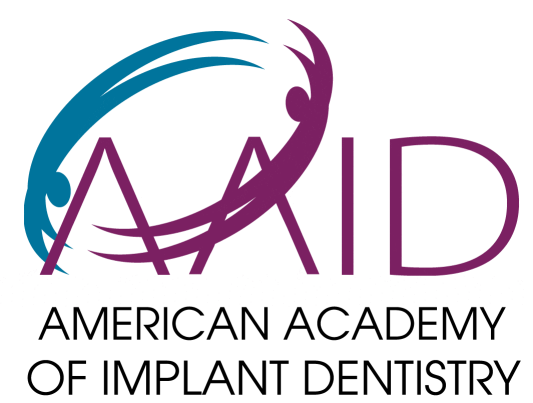Canker sores are painful, noncontagious ulcers that develop inside the mouth, typically healing within two weeks with or without treatment. At Lansdowne Family Dental, we frequently help patients in Ashburn, Leesburg, Sterling, and Lansdowne, VA understand these common oral lesions that can cause significant discomfort during eating, drinking, and speaking.
These aphthous ulcers can be triggered by various factors and respond well to both over-the-counter and prescription treatments. Common causes and contributing factors include:
- Stress and hormonal changes – Often trigger outbreaks
- Minor injuries – From dental work, aggressive brushing, or accidental bites
- Acidic or spicy foods – Can irritate sensitive mouth tissues
- Nutritional deficiencies – Particularly B-12, zinc, folate, or iron
- Weakened immune system – Makes individuals more susceptible
While most canker sores resolve naturally, treatment options including medicated gels, ointments, and rinses can provide relief and speed healing. It’s important to seek professional dental care if sores are unusually large, persist beyond two weeks, or significantly interfere with daily activities.
This comprehensive guide will explore everything you need to know about canker sores, from identifying symptoms to effective treatment strategies and prevention methods.
What Are Canker Sores?
Canker sores are small, shallow ulcers that develop on the soft tissues inside the mouth, such as the gums, tongue, lips, and cheeks. They are usually round or oval with a white or yellowish center and a red border. While canker sores can be painful and bothersome, they are not contagious. These sores can vary in size and may occur as single ulcers or in clusters.
What Causes Canker Sores?
The exact cause of canker sores isn’t always clear, as they can result from various factors. While they are not linked to viruses like cold sores, several triggers might contribute to their development.
- Minor Injuries: Accidental bites, aggressive brushing, or sharp dental appliances can cause minor injuries to the mouth’s soft tissues, leading to canker sores.
- Food Sensitivities: Certain acidic or spicy foods can trigger canker sores in some individuals who are sensitive to them.
- Nutritional Deficiencies: Lack of essential nutrients like vitamin B12, zinc, folate, and iron can increase the likelihood of canker sores.
- Stress: Emotional stress can weaken the immune system, making the body more susceptible to canker sores.
- Hormonal Changes: Fluctuations in hormone levels, particularly during the menstrual cycle, can contribute to their occurrence.
What Are Treatment Options For Canker Sores?
Dealing with canker sores can be uncomfortable, but there are various treatment methods available to alleviate symptoms and promote healing.
- Schedule a consultation with an expert dentist to make the checkup process on your oral health
- Over-the-Counter (OTC) Products: Topical gels, creams, and ointments containing ingredients like benzocaine or hydrocortisone can provide pain relief.
- Salt Water Rinses: Gargling with warm salt water helps keep the area clean and reduces irritation.
- Topical Antibiotics: In some cases, your dentist or doctor might prescribe antibiotic mouthwashes or ointments to prevent infection.
- Avoiding Irritants: Steer clear of spicy and acidic foods that can exacerbate the pain.
- Dietary Supplements: If nutritional deficiencies are a factor, supplements can aid in the healing process.

FAQs about Canker Sores
Q: Are canker sores the same as cold sores?
- A: No, they’re different. Canker sores occur inside the mouth and are not contagious, while cold sores usually appear on the lips and are caused by the herpes virus.
Q: How long do canker sores typically last?
- A: Minor canker sores usually heal within a week or two. Larger or more painful ones might take slightly longer.
Q: Can stress really trigger canker sores?
- A: Yes, stress can weaken your immune system, making you more prone to developing canker sores.
Q: Can I prevent canker sores?
- A: While not always preventable, maintaining good oral hygiene, managing stress, and avoiding irritants can reduce the risk.
Q: When should I see a healthcare provider?
- A: If your canker sores are unusually large, last longer than three weeks, are accompanied by high fever, or cause severe pain, seek medical advice.
Q: Can canker sores be a sign of an underlying health condition?
- A: In rare cases, persistent or unusually frequent canker sores can indicate underlying health issues. Consulting a healthcare professional is recommended.
Conclusion
In conclusion, understanding Canker Sores: What It Is, Causes & Treatment empowers you to manage and alleviate the discomfort associated with these oral ulcers. By adopting a combination of preventive measures and effective treatment methods, you can promote quicker healing and reduce the likelihood of recurrence. Remember that while home remedies and OTC products can provide relief, consulting a healthcare professional for persistent or severe cases is crucial. Here’s to maintaining optimal oral health and saying goodbye to canker sore woes!






